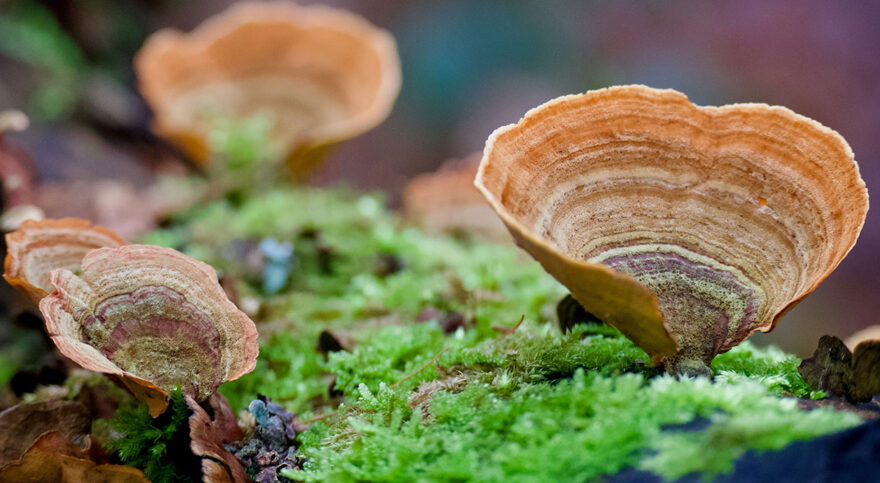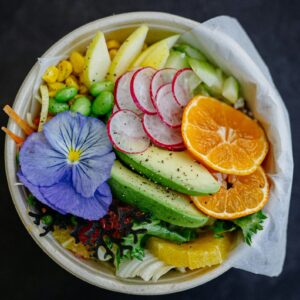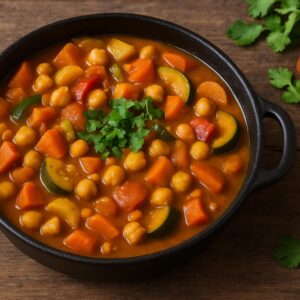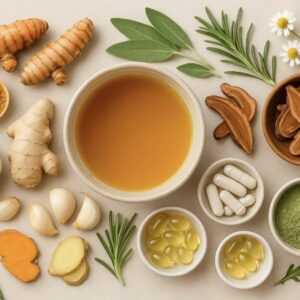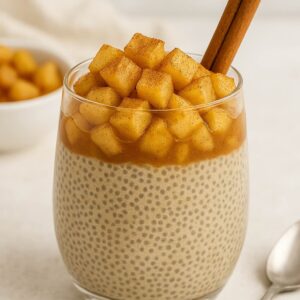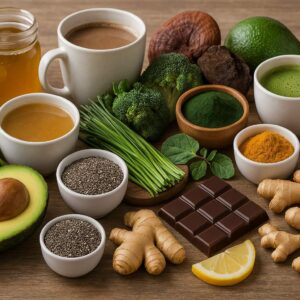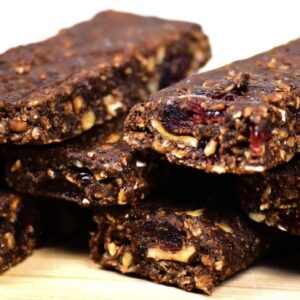Step aside, ordinary mushrooms! The Turkey Tail mushroom (Trametes versicolor) is ready to level up your well-being game, particularly when it comes to gut health. Known for its vibrant colours and remarkable health benefits, this enchanting fungus has been a go-to in traditional Chinese medicine for centuries. But what exactly makes Turkey Tail so extraordinary for your digestive system, and how can you infuse its superpowers into your daily routine? Let’s explore the science behind its gut-loving marvels and playful ways to incorporate it into your diet!
Gut Health and Digestion
Turkey Tail mushroom is a hero for your gut, packed with prebiotic fibres that nourish your digestive system. These fibres feed the good bacteria in your gut, helping to keep everything balanced and harmonious. Research shows that Turkey Tail extract can boost your gut microbiota, promoting friendly bacteria like Lactobacillus and Bifidobacterium, which are crucial for a healthy digestive system.
Prebiotic Powerhouse: The prebiotic fibres in Turkey Tail mushroom serve as food for your gut’s beneficial bacteria. Prebiotics are essentially food for probiotics, the good bacteria in your gut. When you consume Turkey Tail mushroom, you’re providing these good bacteria with the nourishment they need to thrive. A healthy balance of gut flora is essential for effective digestion, better nutrient absorption, and a stronger immune system.
Supporting Gut Barrier Function: By fostering a healthy microbiome, Turkey Tail mushrooms also contribute to the integrity of the gut barrier. The gut barrier acts as a gatekeeper, controlling what gets absorbed into the bloodstream and what stays out. A well-functioning gut barrier is crucial for preventing harmful substances from entering the bloodstream and causing inflammation or infection. Turkey Tail’s ability to support a diverse and balanced microbiome helps maintain this barrier, ensuring smooth and efficient digestion.
Anti-Inflammatory Benefits: Inflammation in the gut can lead to a variety of digestive issues, including irritable bowel syndrome (IBS) and inflammatory bowel disease (IBD). The polysaccharides in Turkey Tail mushrooms have potent anti-inflammatory properties. These compounds help soothe the gut lining, reducing inflammation and promoting healing. This can lead to less discomfort and a happier digestive tract.
Immune-Boosting Powerhouse
Turkey Tail mushroom also acts like a superhero for your immune system. Packed with polysaccharopeptides like PSK (polysaccharide-K) and PSP (polysaccharide-peptide), it boasts incredible immune-enhancing abilities. Research indicates that these compounds can rev up your immune cells—like natural killer (NK) cells, T-cells, and macrophages—turning your body into a fortress against infections and diseases. PSK, in particular, has shown promise in aiding cancer patients by bolstering their immune response alongside chemotherapy. Talk about a powerful sidekick!
Anti-Cancer Potential
Turkey Tail’s anti-cancer properties are equally impressive. Studies have shown that PSK and PSP not only slow down cancer cell growth but also amplify the effectiveness of traditional cancer treatments. In fact, PSK has been found to improve survival rates for colorectal cancer patients. It’s like having a tiny, colourful warrior fighting on your side.
How to Use Turkey Tail Mushroom Powder
Ready to sprinkle some Turkey Tail magic into your life? Here are some fun and easy ways to incorporate Turkey Tail mushroom powder into your daily routine:
Morning Smoothie: Kickstart your day with an immune-boosting smoothie by blending a teaspoon of Turkey Tail mushroom powder with your favourite fruits, leafy greens, healthy fats, and protein sources. This delicious combo will give your gut the perfect start to the day.
Herbal Tea: Brew a comforting cup of herbal tea by mixing a teaspoon of Turkey Tail mushroom powder into hot water or your favourite herbal blend. Add a splash of lemon and honey for extra flavour.
Soup and Stews: Sneak some health benefits into your soups and stews by adding Turkey Tail mushroom powder while cooking. Its earthy flavour blends perfectly with broths
Yoghurt: Stir Turkey Tail mushroom powder into a serving of yoghurt. Top with fresh fruits and granola for a delicious and gut-friendly snack.
Baked Goods: Include Turkey Tail mushroom powder in your homemade baked goods, such as muffins, cookies, or bread. This adds a nutritional boost without altering the flavour significantly.
Salad Dressing: Mix a small amount of Turkey Tail mushroom powder into your homemade salad dressing. It pairs well with ingredients like olive oil, lemon juice, and herbs for a healthful addition to your salads and veggies.
Smoothie Bowls: Enhance your smoothie bowls by blending in Turkey Tail mushroom powder. Top with fresh fruits, nuts, seeds, and granola for a visually appealing and nutritious meal.
Turkey Tail mushroom isn’t just another pretty face in the fungi world—it’s a powerhouse of health benefits. Whether you’re aiming to boost your immune system, support cancer treatments, or enhance gut health, this colourful mushroom has got you covered. So why not sprinkle some Turkey Tail mushroom powder into your daily routine? Whether in smoothies, teas, soups, or snacks, it’s an easy and tasty way to give your body the boost it deserves. Embrace the magic of Turkey Tail and let this natural marvel brighten your wellness journey!
References:
Yang, Q., & Gan, R. Y. (2018). “The Immunomodulatory and Anti-Cancer Properties of Polysaccharide-K (PSK) and Polysaccharopeptide (PSP) from Turkey Tail Mushroom (Trametes versicolor).” Journal of Clinical Medicine, 7(9), 282.
Ooi, V. E. C., & Liu, F. (1999). “A review of pharmacological activities of mushroom polysaccharides.” International Journal of Medicinal Mushrooms, 1(3), 195-206.
Fisher, M., Yang, L. X. (2002). “Anticancer Effects and Mechanisms of Polysaccharide-K (PSK): Implications of Cancer Immunotherapy.” Anticancer Research, 22(3), 1737-1754.
Chen, J., & Seviour, R. (2007). “Medicinal importance of fungal beta-(1→3), (1→6)-glucans.” Mycological Research, 111(6), 635-652.

